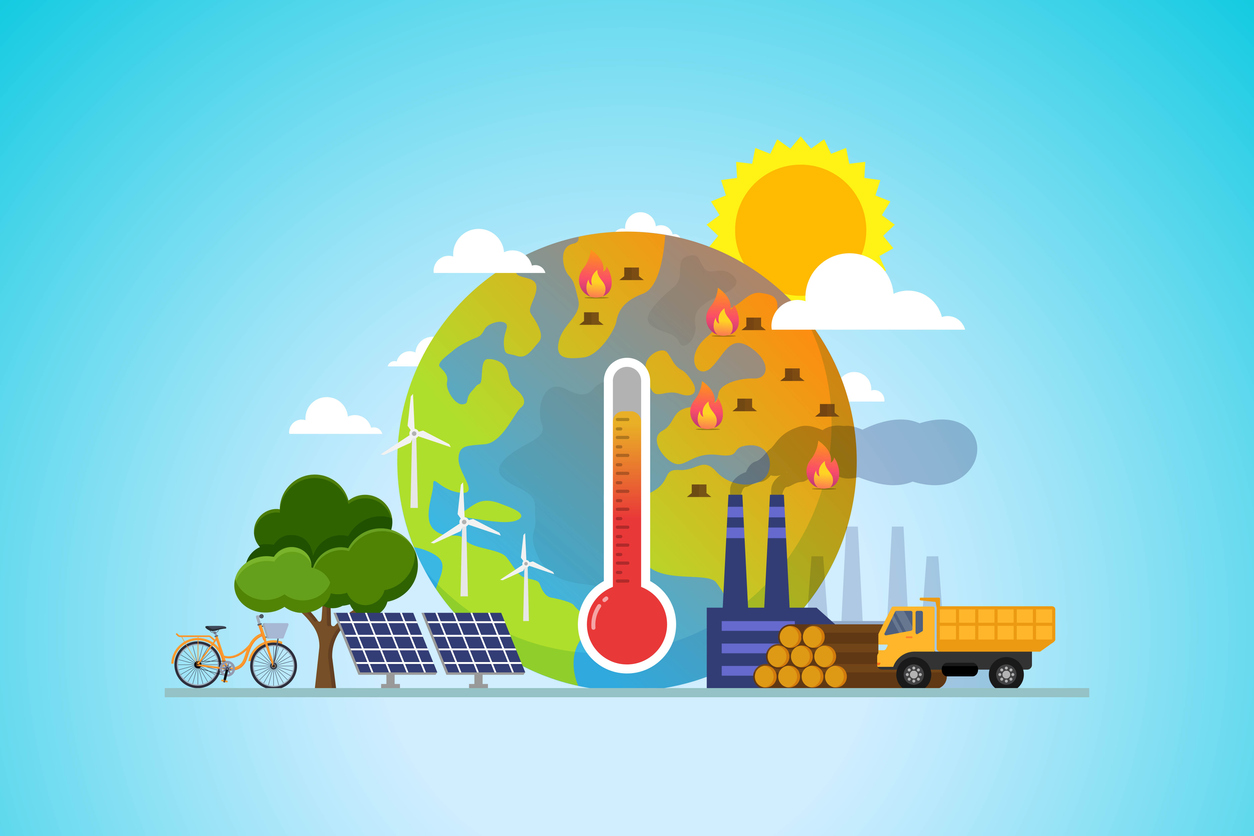2023/12/26
COP28 to Start; Expecting the Leadership of UAE, the Host Country

The 28th Conference of the Parties to the UN Framework Convention on Climate Change (COP28) is starting today, November 30. The UN Intergovernmental Panel on Climate Change (IPCC) has indicated that a 60% reduction from the level of 2019 needs to be achieved by 2035 to limit the rise of global average temperatures to well below 1.5 degrees Celsius, compared to pre-industrial levels. The focus of the conference will be whether this goal can be included in the results as an official target figure. The figure of “60%” was confirmed also at the G7 Hiroshima Summit 2023 in May, and Japan needs to be prepared to achieve this target with a strong will as the G7 chair country.
At COP28, the rule stipulated in the Paris Agreement that the progress toward the reduction target will be reviewed every five years and the target will be revised based on that review is going to be applied for the first time. According to the analysis published before the conference, it is impossible to achieve the goal of “below 1.5 degrees Celsius, and the meaning of the above-mentioned “60%” also lies here. In addition, a proposal to “triple the amount of renewable energy by 2030” that UAE, the host country, aims for the consensus, and discussions on the reduction and abolition of fossil fuels that the EU is emphasizing, are also gaining attention.
On November 20, ahead of COP28, Oxfam International, an international non-governmental organization (NGO), released a report stating that climate change is contributing to global inequality. In detail, it reported, “In 2019, the super-rich 1% were responsible for 16% of global carbon emissions.”; “The carbon emissions of the richest 1% cancel out the benefit of 1 million wind turbines,” and they also exceed the amount of emissions from automobiles and road transport; The impacts of climate change, namely, climate-related disasters, such as floods, sea level rises, droughts, and food crises have been concentrating in developing countries; and at the same time, “A tax of 60% on the incomes of the super-rich 1% of earners globally would cut the carbon equivalent of more than the total emissions of the UK and raise US$6.4 trillion to fund renewable energy and a transition away from fossil fuels.”
At the Conference of the Parties to the UN Framework Convention on Climate Change, ideas of developed countries and those of developing countries always conflict with each other. To borrow Oxfam’s word, rich countries have a “disproportionately” greater responsibility. On the other hand, China, which has always acted as a “developing country” on this issue, has expressed its support for the plan to triple the amount of renewable energy, together with the US, and the interests of each country on each of the subjects are becoming more and more complicated. Opposing opinions from oil-producing countries in the Middle East will inevitably be raised. The chair this time is the UAE, truly an oil-producing country in the Middle East, and the chairman is Sultan al-Jaber, Minister of Industry and Advanced Technology of the UAE, who also serves as CEO of Abu Dhabi National Oil Company (ADNOC). This naturally raises some concerns about whether the appointed chairman from an oil country is willing to engage in the initiative. However, I would dare to expect that UAE exerts its leadership drastically and realistically “because” it is an oil country.
This Week’s Focus, December 1
Takashi Mizukoshi, the President